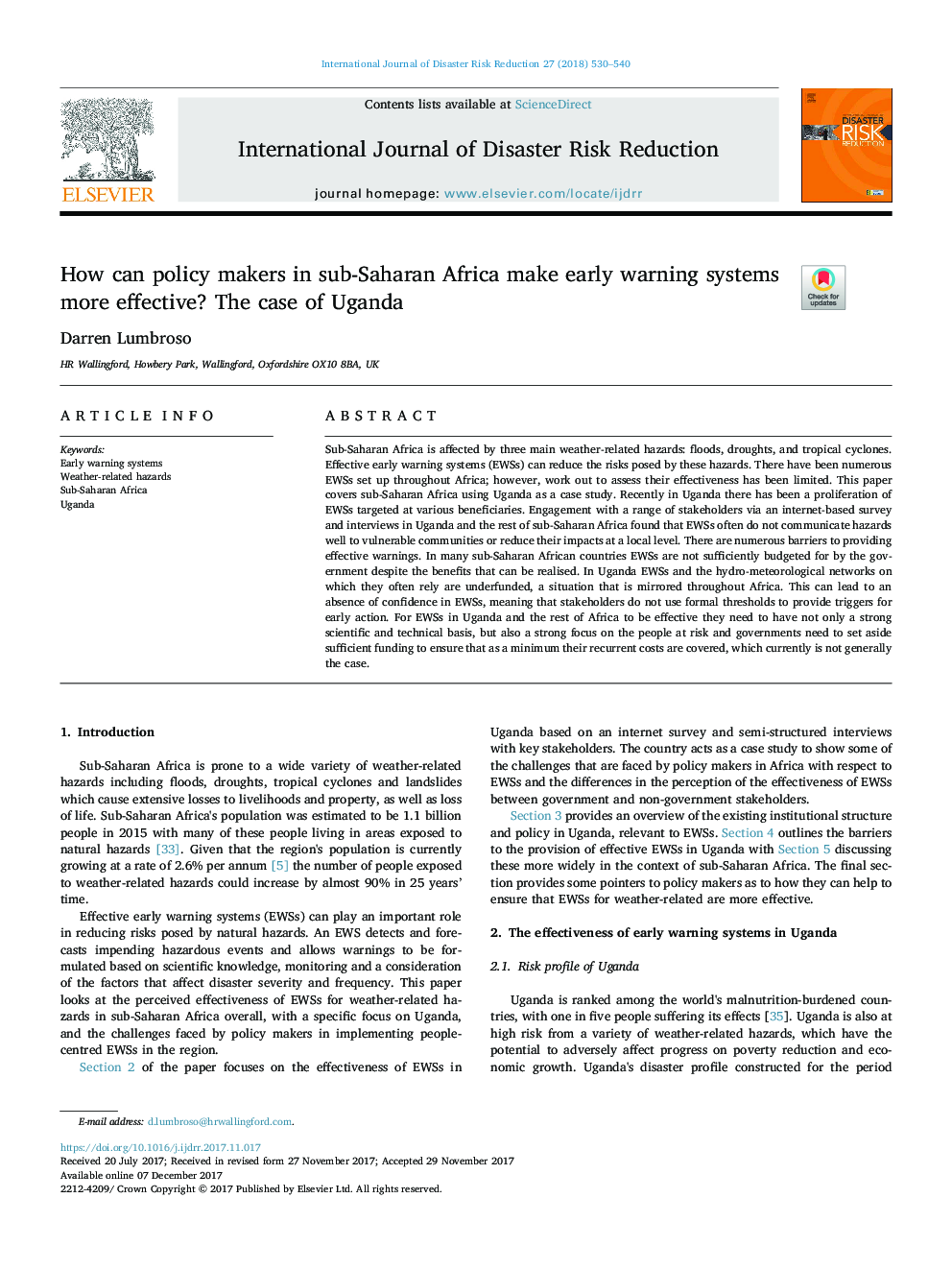| کد مقاله | کد نشریه | سال انتشار | مقاله انگلیسی | نسخه تمام متن |
|---|---|---|---|---|
| 7472072 | 1485143 | 2018 | 11 صفحه PDF | دانلود رایگان |
عنوان انگلیسی مقاله ISI
How can policy makers in sub-Saharan Africa make early warning systems more effective? The case of Uganda
ترجمه فارسی عنوان
چگونه سیاست گذاران در کشورهای جنوب صحرای آفریقا می توانند سیستم های هشدار دهنده زود هنگام را موثرتر کنند؟ مورد اوگاندا
دانلود مقاله + سفارش ترجمه
دانلود مقاله ISI انگلیسی
رایگان برای ایرانیان
کلمات کلیدی
سیستم های هشدار دهنده اولیه خطرات مربوط به آب و هوا، جنوب صحرای آفریقا، اوگاندا،
موضوعات مرتبط
مهندسی و علوم پایه
علوم زمین و سیارات
فیزیک زمین (ژئو فیزیک)
چکیده انگلیسی
Sub-Saharan Africa is affected by three main weather-related hazards: floods, droughts, and tropical cyclones. Effective early warning systems (EWSs) can reduce the risks posed by these hazards. There have been numerous EWSs set up throughout Africa; however, work out to assess their effectiveness has been limited. This paper covers sub-Saharan Africa using Uganda as a case study. Recently in Uganda there has been a proliferation of EWSs targeted at various beneficiaries. Engagement with a range of stakeholders via an internet-based survey and interviews in Uganda and the rest of sub-Saharan Africa found that EWSs often do not communicate hazards well to vulnerable communities or reduce their impacts at a local level. There are numerous barriers to providing effective warnings. In many sub-Saharan African countries EWSs are not sufficiently budgeted for by the government despite the benefits that can be realised. In Uganda EWSs and the hydro-meteorological networks on which they often rely are underfunded, a situation that is mirrored throughout Africa. This can lead to an absence of confidence in EWSs, meaning that stakeholders do not use formal thresholds to provide triggers for early action. For EWSs in Uganda and the rest of Africa to be effective they need to have not only a strong scientific and technical basis, but also a strong focus on the people at risk and governments need to set aside sufficient funding to ensure that as a minimum their recurrent costs are covered, which currently is not generally the case.
ناشر
Database: Elsevier - ScienceDirect (ساینس دایرکت)
Journal: International Journal of Disaster Risk Reduction - Volume 27, March 2018, Pages 530-540
Journal: International Journal of Disaster Risk Reduction - Volume 27, March 2018, Pages 530-540
نویسندگان
Darren Lumbroso,
